Alumni & Advancement
Helping the Alumni Community on Two Fronts
How a Career Access Approach Can Help Alumni Relations Fulfill Alumni Expectations in Multiple Ways Alumni Engagement in the Old […]
Solutions
Helping higher education create transformational change across campus.
See AllFor Universities
Admissions & Enrollment
Maximize enrollment by increasing yield & reducing melt
Experiential Learning
Scale High-Impact Practices for student success
PathwayU
Redefine how students pick majors & careers with PathwayU
Student Success
Increase retention & persistence to graduation
Career Services
Improve career readiness & career navigation
Industry Partners
Connect universities & corporations for project-based learning
Alumni & Advancement
Grow alumni engagement & the philanthropy pipeline
Success Stories
Read how schools leverage PeopleGrove in their communities.
See All Stories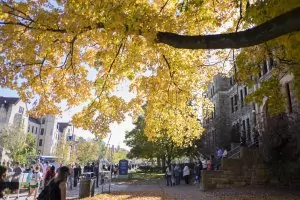
University of Kansas
How University of Kansas scales career services to their 375,000 alumni
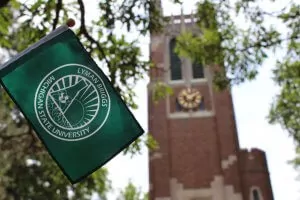
Michigan State University
How Michigan State ensures academic and career success for students

University of Miami
How the Toppel Career Center joined forces with alumni to provide career guidance to students
Resources
Explore blogs, webinars, whitepapers, and more resources to enhance how students and alumni connect.
See All ResourcesBlog
Read posts about how PeopleGrove meets higher education’s ever-changing needs at every turn.
Events
In-person or online, join PeopleGrove for unmatched experiences, conferences, webinars, and more.
Research Library
A collection of stories, events, research, and best practices to transform learners’ experiences.
Super Mentors Book
The ordinary person’s guide to asking extraordinary people for help.
Innovators Community
Learn from thought leaders and practitioners in both higher education and workforce development.
About
PeopleGrove is made for learners by learners. Everyone here makes it possible for students and alumni to succeed.
Learn MoreCareers
Be a part of the next big thing for learners everywhere and start making an impact. Join us today!
Contact
Want to get in touch? Have a question? We’d love to hear from you. Connect with us.
Alumni & Advancement
How a Career Access Approach Can Help Alumni Relations Fulfill Alumni Expectations in Multiple Ways Alumni Engagement in the Old […]
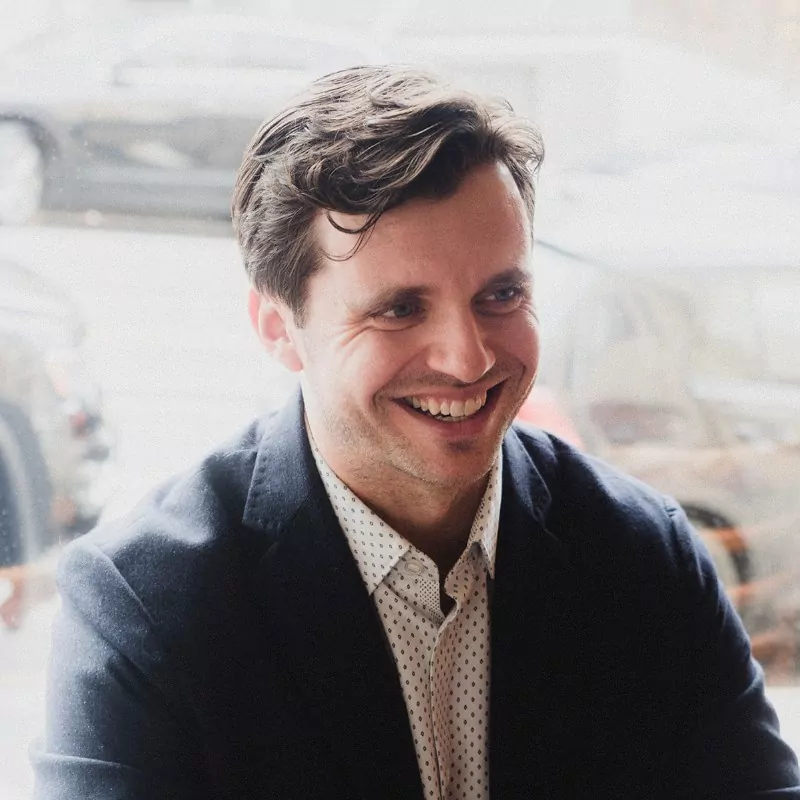

“Congratulations on your graduation from our esteemed university. We did a great job with you, didn’t we? Show how much you love us by giving a gift today!”
That’s basically what most graduates are hearing from their alumni association after they cross the stage. You might not be saying that specifically, but trust us, that’s what they’re hearing. And seeing as your recent alumni have lived through three different economic downturns (two of them recessions), the message is starting to wear very thin.
Thankfully, most institutions have put significant work into trying to change that message over the past decade. Advancement offices now talk about their Young Alumni or their GOLD alumni — Graduates of the Last Decade. This segmentation has allowed alumni relations to construct specific strategies around these younger professionals, and avoid awkwardly asking for money from a generation saddled with huge student debt.
Unfortunately, where alumni relations still struggles is in determining what that first touch point should really be. What should we be saying to graduates after they cross the stage?
Thus, alumni offices have gone back to some of the tried and true engagement tactics like happy hours or gamewatches. They try to keep the good times of college alive through homecoming and regional club parties.
But there is a more effective way to keep young graduates in the fold. One that also helps extend the culture of philanthropy that institutions seek to build.
The truth is that alumni still have very high expectations of their institution. Specifically, survey1 after survey2 tell us alumni expect the alumni association to help them “identify job opportunities for graduates” and to help them “network with other alumni.” It’s two of the top three areas where alumni say their alumni association falls short.
For students, these responsibilities typically fall to Career Services. So Alumni Relations professionals often expect their colleagues in that office to also support alumni when they ask for it. However, with an average ratio of 2,377 students to every 1 student-facing staff member3, it’s just not practical or feasible to expect that career staff to shoulder the burden of possibly hundreds of thousands of more stakeholders to serve.
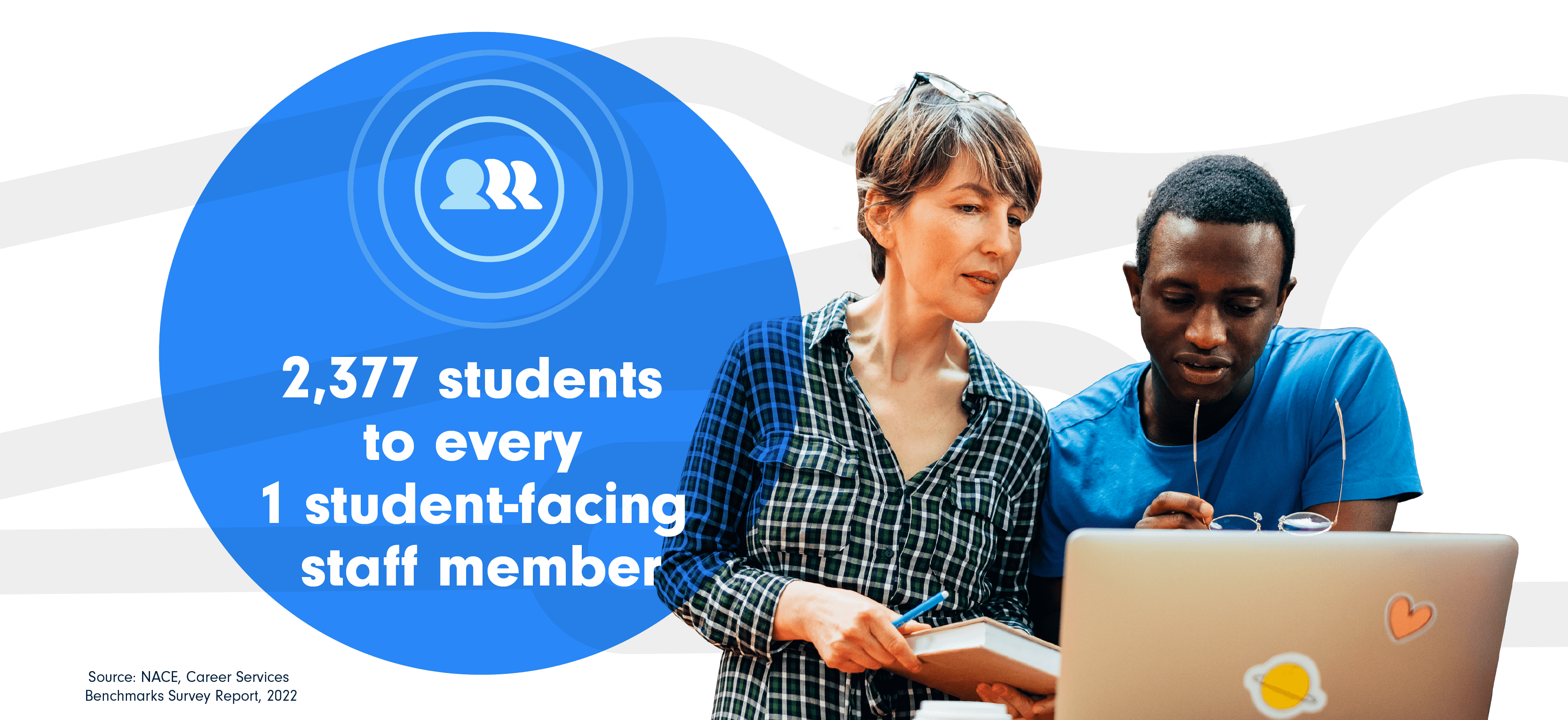
Of course, the alumni who are seeking this help don’t particularly care what office supports them. They don’t experience “Career Services” and “Alumni Relations” as separate offices anymore. They experience one alma mater who isn’t meeting their needs. That results in a lost community member, advocate, and donor.
But here’s the good news: the third area where alumni feel their association falls short is in providing them the opportunity to “mentor students.” And this provides us with the perfect solution because this tells us alumni are willing to help!
As we wrote in Career Access: Higher Education’ New Core Differentiator, the idea of “mentoring” and “mentorship” is changing. Rather than seeking out guidance or advice, knowledge-seekers are really interested in earning opportunities through their networks. They are hoping to build Super Mentors rather than have a Yoda or a Glinda just telling them what they think they should do.
This re-frame of mentorship has also allowed knowledge-seekers to expand their pool of potential mentors. Far more mentees are reaching out to peers or near peers for potential opportunities. In a recent study of 10,000 connections made across PeopleGrove platforms in our community, we found that the majority of connections were taking place between those with a delta of 3-5 years when looking at the year the two individuals graduated. This shows us how valuable learners find that mentor just ahead of them. This includes alumni reaching out to other alumni. So when alumni say they want to “mentor students,” what they’re really saying is they want to help their entire university community — students and fellow alumni alike.
A social capital strategy is at the core of a Career Access approach. In essence, it allows alumni to provide themselves with the career support they are asking for. By creating a way for them to mentor students (#2 on the list) while reframing the idea of mentorship, you also give them the chance to network with each other (#3) and get access to job opportunities (#1).
Career Access is the principle that every individual, regardless of their background or status, has the ability to fully understand how their passions, interests, and studies can become a meaningful career. Then, with newfound confidence and vital resources, they can build the competencies necessary to achieve and succeed in that career.
Building this type of community starts with harnessing that willingness and desire of alumni to give back. But it also asks us to ensure that we are creating an environment where alumni are giving back in the way they want, helping students and their fellow alumni advance in their careers. It asks us to think strategically and intentionally about social capital and how it plays a role in our stakeholders’ success. And lastly, it asks us to take action and not leave that success up to chance.
Which brings us back to that walk across the stage. It’d be easy for us to imagine that these new alumni don’t yet have that willingness to give back or don’t have the experience with our alumni association yet that would give them perspective on the importance of this volunteerism. Frankly, it’s easy for us to imagine that many of these new graduates don’t see themselves as having much to offer.
However, our research shows that 3 out of 4 students participating in such a social capital focused community — such as the ones we create at PeopleGrove — look forward to being able to provide advice through the platform. The opportunity to give alumni what they want is now clear.
“Congratulations on your graduation from our esteemed university. We know you’re eager to support your one career WHILE supporting the classmates behind you. We’d love to help make that happen!”
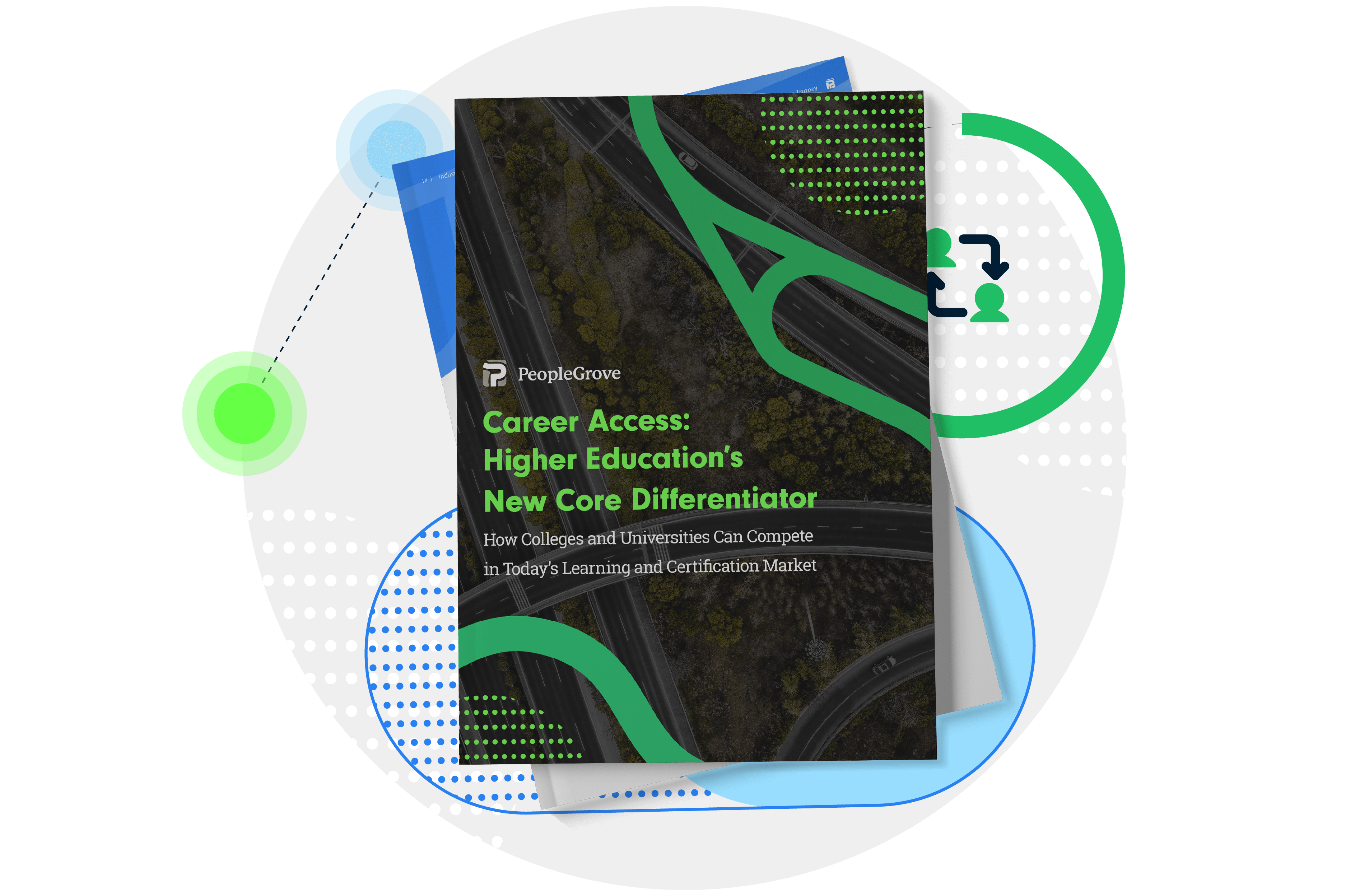
Keep reading about this promising new concept in Career Access: Higher Education’s New Core Differentiator.
Browse more research and insights.
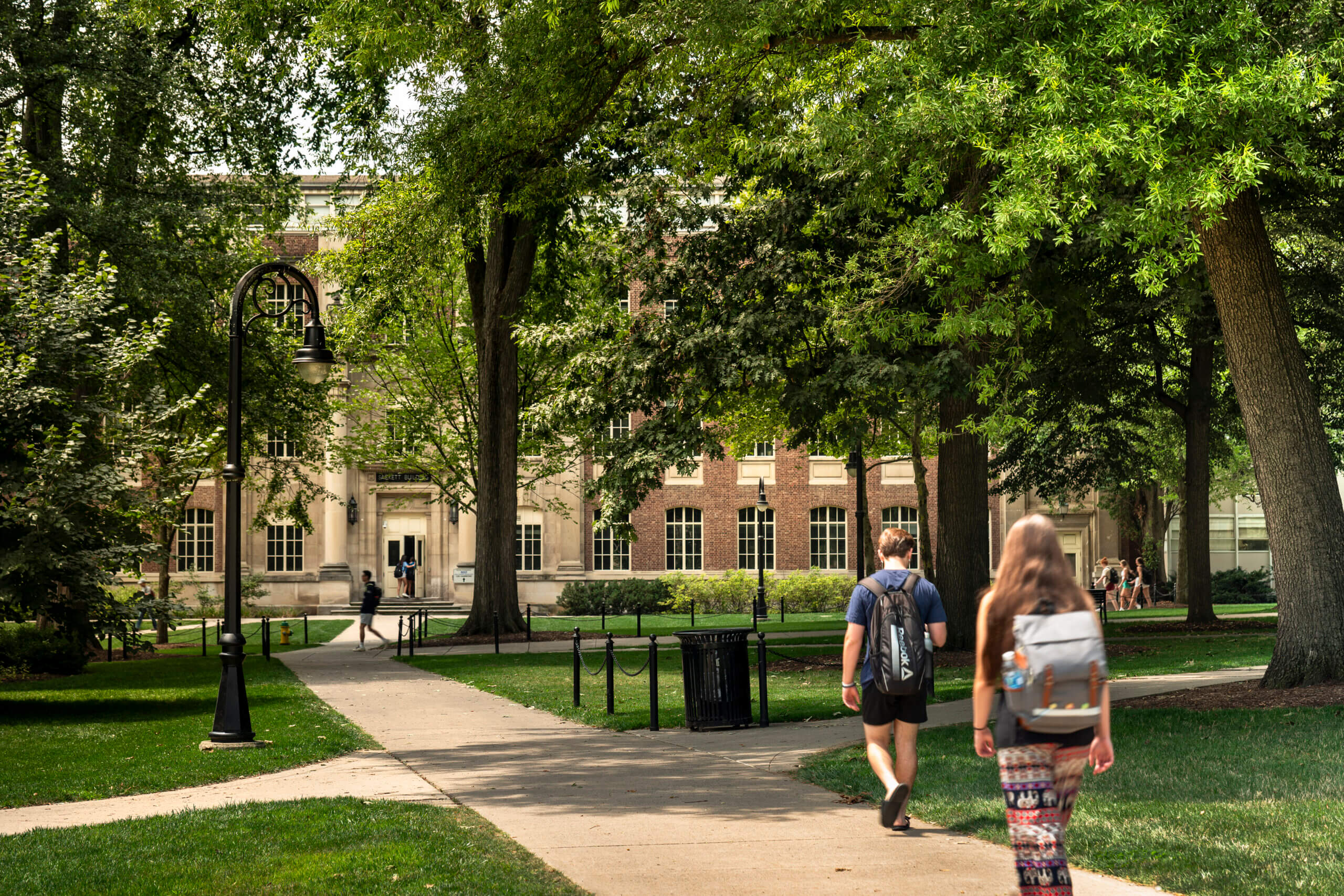
Alumni & Advancement
Harnessing Campus Partnerships and Data to Deepen Alumni Connections Georgia Tech, known for its robust alumni network of over 200,000 […]
3 min read
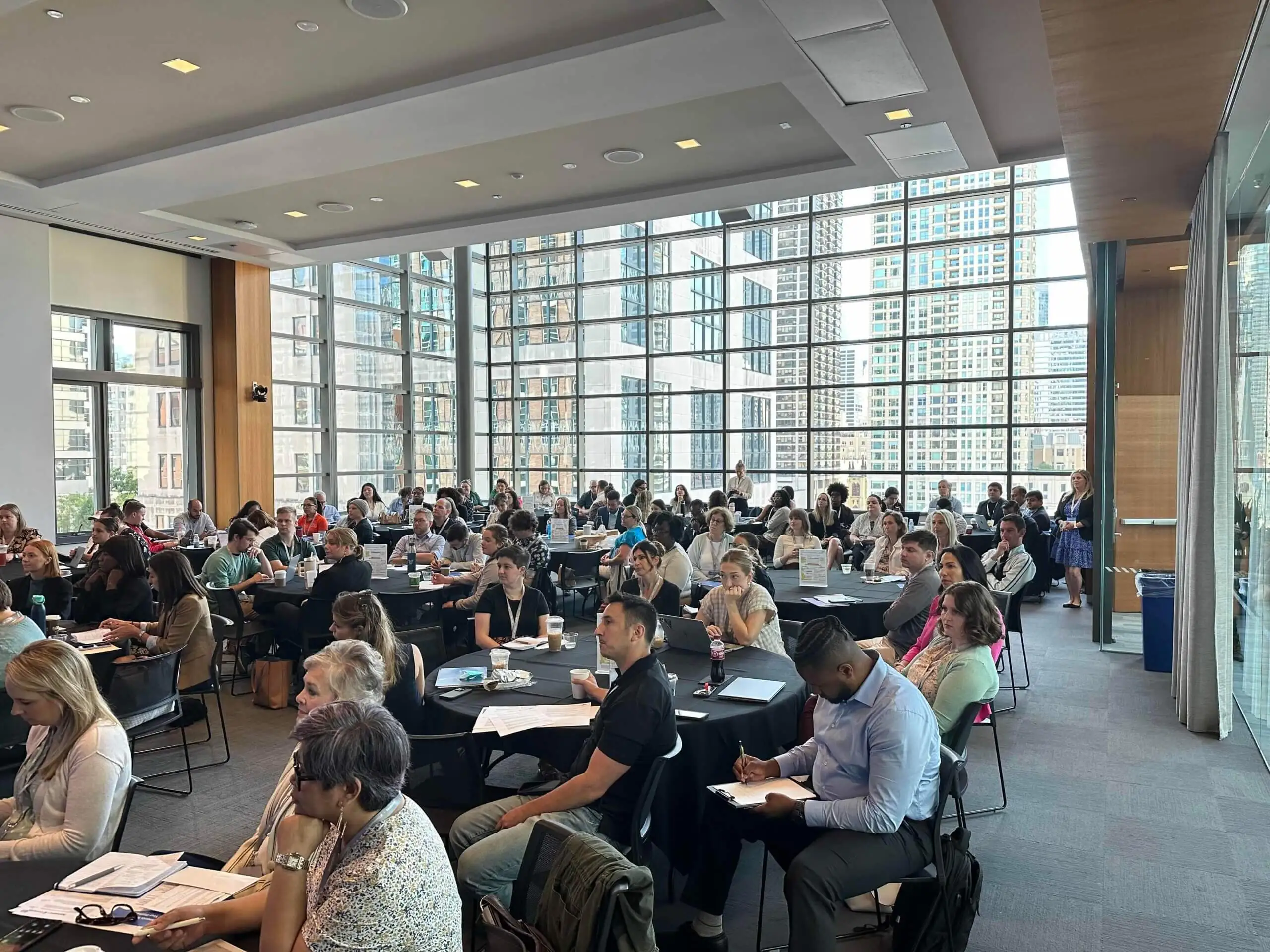
Company
Conference Review Innovators + CommunityLIVE 2024 On August 5th, 2024, higher education leaders, innovators, and thought leaders came together at […]
3 min read

Career Services
For nontraditional students pursuing higher education while balancing work, family, or both, support can be key to student success. University […]
4 min read